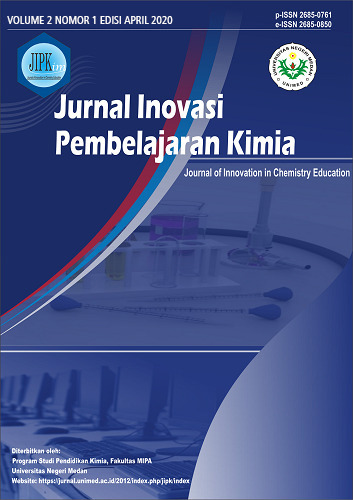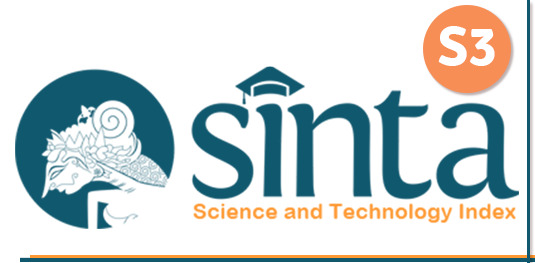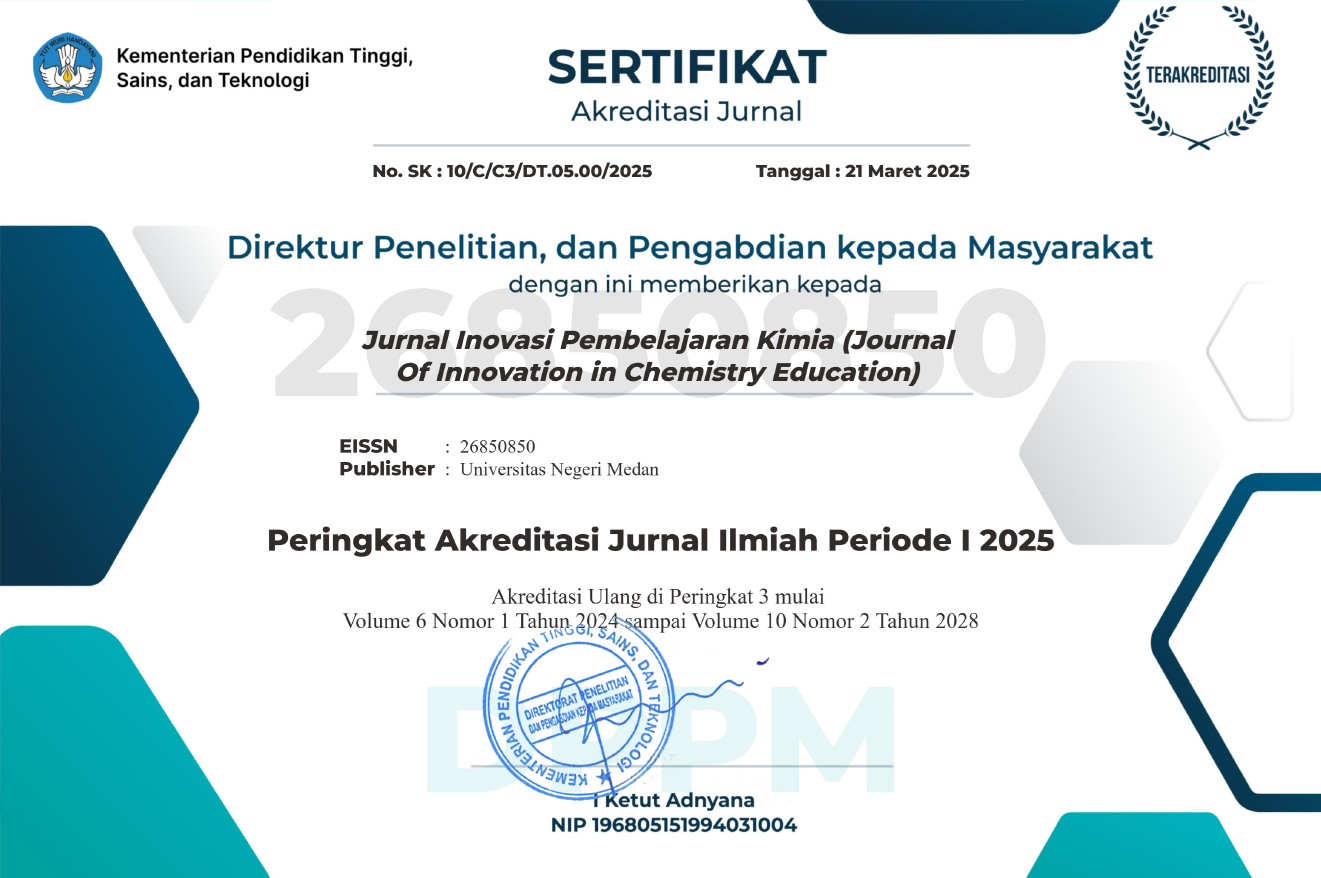PENGEMBANGAN MODUL LAJU REAKSI BERBASIS PEDAGOGICAL CONTENT KNOWLEDGE (PCK) UNTUK MENINGKATKAN HASIL BELAJAR SISWA
DOI:
https://doi.org/10.24114/jipk.v2i1.17853Keywords:
Modules, Pedagogical Content Knowledge, Reaction Rate, Learning OutcomesAbstract
This study aims to analyze the feasibility of the PCK Chemistry module and learning outcomes on the subject matter of the reaction rate taught by the PCK Chemistry module class XI MAN 1 Medan Medan. The selected sample is class XI MIA 3 as an experimental class. The method used in this research is R&D. The module analysis results state that the average overall validation result is 3.65 which means that the module is feasible to use. While the results of the module analysis based on the respondents obtained an average of 3.70 which means that the developed PCK module is appropriate to use. This is also evidenced from student learning outcomes that are taught using the PCK chemistry module. Hypothesis testing is done by using the t-one party test that is the right side, with the results of this study at a significance level of 5% (α = 0.05) indicating that tcount> t table (12.63> 1.68) then Ho is rejected. Thus, showing chemistry learning outcomes using the PCK chemistry module is greater or equal to KKM, where an average pretest of 28.25 is obtained and an average of posttest is obtained an average of 86.04.References
Adawiyah, R., Sukaryawan, M., & Mujamil, J., (2019). Pengembangan Modul Laju Reaksi Berbasis Kontruktivisme Lima Fase Needham, Jurnal Penelitian Pendidikan Kimia Universitas Sriwijaya, 6(1):18-24.
Andromeda, E. B., (2018). Validitas dan Praktikalitas Modul Laju Reaksi Tetintegrasi Eksperimen dan Keterampilan Proses Sains untuk Pembelajaran Kimia di SMA, Jurnal Eksakta Pendidikan, 2(2):132-139.
Badan Standar Nasional Pendidikan, (2008). Instrumen Penilaian Buku Teks Pelajaran Pendidikan Dasar Menengah, Depdiknas. Jakarta
Driel, J., (2010). Model-based development of science teachers' Pedagogical Content Knowledge. International Seminar, Proffesional Rreflections, National Science Learning Centre,York.
Lenhart, S., (2010). The Effect Of Teacher Pedagogical Content Knowledge and The Instruction of Middle School Geometry, Liberty Univesity. Disertaion Doctor of Education, Facukty of the School of Education.
Loughran, J., (2012). Science Teachers ˜Views on CoRes and PaP-eRs as a Framework for Articulating and Developing Pedagogical Content Knowledge, Resecarch an Science Education, 42:1027-1047 DOI 10.1007/s1165-011-9227-4.
Meltzer, D. E., (2002). The Relationship Between Mathematics Preparation and Conceptual Learning Gains in Physics:A Possible "Hidden Variable" in Diagnostic Pretest Score, American Association of Physics Teachers, 70(12):1259-1268.
Prastowo, A., (2011). Panduan Kreatif Membuat Bahan Ajar Inovatif, Yogyakarta. Diva Press.
Ristiyanti, E., & Bahriah, E. S., (2016). Analisis Kesulitan Belajar Kimia Siswa di SMAN X Kota Tangerang Selatan, Jurnal Penelitian dan Pembelajaran IPA, 2(1):18-29.
Shulman, L. S., (1986). Those Who Understand: Konwledge Growth In Teaching, Educational Research, 15(2):4-31.
Silitonga, P. M., (2013). Statistika Teori Dan Aplikasi Dalam Penelitian. Universitas Negeri Medan. FMIPA.
Sungkono., (2003). Pengembangan Bahan Ajar, Yogyakarta. FIP UNY.













